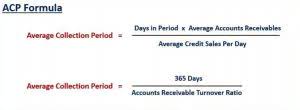How to Become a Bookkeeper: A Step By Step Guide

Consider a bachelor’s degree in accounting, business administration, or finance. This is a great way to gain real-world experience as you become a bookkeeper and, potentially, a bookkeeping business owner. Previous work experience makes finding clients as a bookkeeping business owner much easier. If you’re just launching your bookkeeping career, a professional certification can set you apart from the competition. This credential can boost your credibility in the eyes of potential employers, especially if you’re just breaking into the job market. Both AIPB and NACPB require previous bookkeeping experience to qualify for their courses.
- You can also pursue on-the-job training, building job skills through an internship or junior bookkeeping role.
- CB certification also requires more professional experience than a CPB license.
- While these requirements may sound tedious, they could benefit your career in the long term.
- Our cloud-based bookkeeping software solution is quick, efficient, and capable of saving you countless hours of administrative work.
- However, more knowledge is always an asset, and a bookkeeping certificate can make your resume look more attractive, potentially helping you to gain clients.
National Association of Certified Public Bookkeepers (NACPB)

NACPB estimates seven to 13 weeks per class, but you may finish earlier if you dedicate more time to studying. A certification includes a pre-assessment test, the course itself, a post-assessment test and a certification exam. A career in bookkeeping may be a difficult choice because of qualified bookkeeper the decline in future roles. However, bookkeepers can learn specialized skills and earn certifications to stand out among peers. Corporations may hire comparatively well-educated bookkeepers, especially if they provide additional niche knowledge compared to general accounting software.
Recommended experience
Demonstrating a high level of proficiency can reassure employers that you’re equipped to take on greater responsibility, significantly raising your earning potential. If you’re looking online for bookkeeping certifications, you’ve probably already run into information about accounting programs. While there are similarities between bookkeeping vs. accounting, these two fields are not the same. A bookkeeping certification is an official demonstration of a person’s bookkeeping skills. It’s a way to show your skill set to potential employers and others in your professional network.
Step 4: Choose Your Bookkeeper Certification Program
Both organizations require candidates to pass exams, verify their educational or professional experience, and agree to adhere to a professional code of conduct. Still, AIPB suggests that candidates have a strong educational background in topics covered by the exam, like fraud prevention and inventory recording. However, these certifications differ in scope, prerequisites, and renewal requirements.
Learn about bookkeeping, typical responsibilities, how to become a bookkeeper, and remote bookkeeping opportunities with Intuit’s QuickBooks Live in the U.S. So, you need to decide exactly what type of credibility you’re seeking. Do you want to be more credible across bookkeeping in general or just for a particular software program, like QuickBooks or Xero? This will assist in determining the best type of certification for you.
What can I do after completing the Professional Certificate?

This experience will help individuals reach hourly certification minimums efficiently. The primary task of a bookkeeper is to keep a track of the financial transactions of a business and generate relevant and accurate reports. These reports help the accountants, as well as the business owners, understand the financial position of the business. Bookkeepers are the professionals who record the day-to-day transactions of a business in an organised manner. This process of identifying, accepting, classifying, and recording financial transactions requires attention to detail, multitasking, and undertaking a lot of number crunching. Once you’ve met all of your chosen credential’s requirements and completed your preparatory courses, it’s time to take the exams.
What was the career path that led you to own a bookkeeping firm? What do you think helped you most on your journey?
As a bookkeeper, you may need to help the business learn the best practices to keep their financial records up to date and organized. If you already have the bookkeeping knowledge you need, you might choose to grow your business around a particular accounting application by becoming certified in that software. This enables you to gain a better understanding of the software so that you can support your small business clients. You’ll also have added credibility and increased visibility from being listed in advisor directories so that potential clients can find you easily. Clients often look at certifications to verify a level of experience and expertise when selecting a bookkeeper, so we’ll walk you through how to become a certified bookkeeper. From assessing your current level of education to choosing a certification program, our guide will help you.

